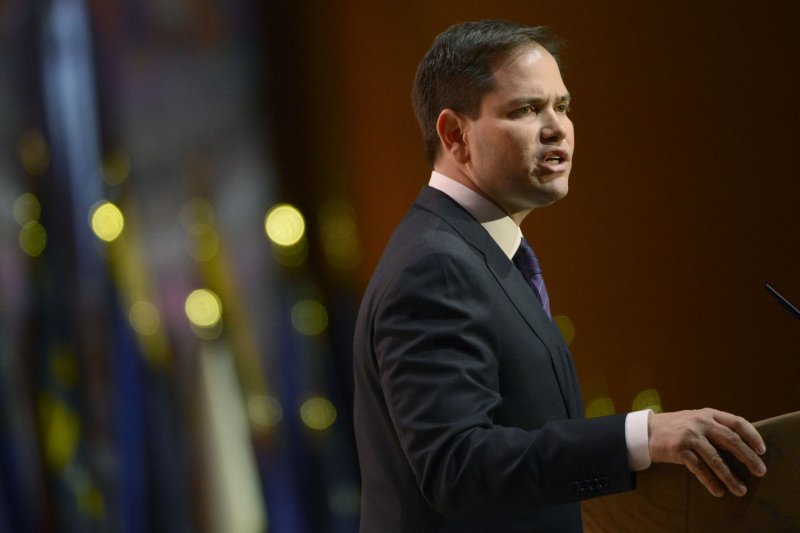WASHINGTON, May 19 (UPI) -- Florida Senator and potential 2016 candidate Marco Rubio came down firmly against the decriminalization of marijuana, while refusing -- again -- to reveal whether he had ever experimented with the drug as a younger man.
In an interview airing Monday, Rubio was tight-lipped on his own pot smoking (or not) past, saying that if he revealed that he had done drugs, but still turned out successful, that would make other young people think recreational marijuana smoking was fine.
"Here is the problem with that question in American politics," he said. "If you say that you did, suddenly there are people out there saying it is not a big deal, look at all these successful people who did it."
"And I don't want my kids to smoke marijuana," he continued. "And I don't want other people's kids to smoke marijuana. I don't think there is a responsible way to recreationally use marijuana. On the other side of it, if you tell people that you didn't, they won't believe you. So it is just a worthless question."
"I understand it is a question today that people think they need to ask, but the bottom line is, I don't think people should smoke marijuana," he said.
But Rubio may find himself on the wrong side of public sentiment, as a growing number of Americans approve of legalizing recreational use of the drug. In 2013, a Gallup poll found support for legalization jump 10 points in just one year, to 58 percent.
Meanwhile, a number of states have begun efforts to reschedule the drug's use: Nine states and the District of Columbia have legalized medical marijuana and decriminalized recreational use, while seven states have decriminalized marijuana possession and nine others have legalized medical use. Perhaps most tellingly, federal authorities have adopted a wait-and-see approach in Washington and Colorado, which both approved full legalization in 2012.
Still, several members of Congress have made their opposition to the trend towards decriminalization known, and have been holding a series of hearings on how the federal government ought to respond, particularly on D.C.'s new decriminalization law.
In his comments, Rubio expressed distrust for the safety of marijuana use, one of legalization proponents' more successful arguments.
"The bottom line is, I believe that adding yet another mind-altering substance to something that's legal is not good for the country," he said. "I understand there are people that have different views on it, but I feel strongly about that."















